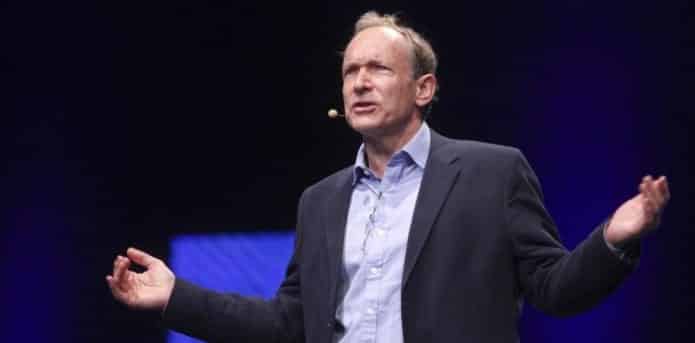‘Just Say No’ To Internet.org, says Tim Berners-Lee, founder of World Wide Web
Attacking Facebook’s initiative known as Free Basics (formerly Internet.org), the English scientist, Tim Berners-Lee also widely known as the inventor of the World Wide Web said that consumers should say no to such initiatives. The initiative by Facebook aims at offering a limited set of websites and apps free of charge to users in developing countries. Berners-Lee added that if something is being offered in the name of the Internet that is not full Internet, then it’s not really free and public.
In an interview with The Guardian, Berners-Lee said people in prominent markets should “just say no” to the project. Speaking about the importance of privacy and the dangers of government snooping, he added that the initiative was not internet and that there were other ways of reducing the price of access.
“When it comes to compromising on net neutrality, I tend to say ‘just say no’,” he said.
According to the reports by The Guardian, Berners-Lee and the Web We Want festival came together to produce a Magna Carta for the 21st century on the 800th anniversary of the signing of Magna Carta. The Web We Want campaign is promoting five key principles for the future of the Web: freedom of expression online and offline, protection of user data and privacy, affordable access to the net, net neutrality, and a decentralised and open infrastructure.
Facebook’s controversial initiative faced criticism, as it is seen violating the principle of net neutrality, which is against any priority being accorded to an entity in the internet traffic flow because of payments to service providers such as telecom companies. Last month, it was renamed as Free Basics to differentiate the Internet.org initiative from the programmes and services that Facebook provides.
“In the particular case of somebody who’s offering … something which is branded internet, it’s not internet, then you just say no. No it isn’t free, no it isn’t in the public domain, there are other ways of reducing the price of internet connectivity and giving something … (only) giving people data connectivity to part of the network deliberately, I think is a step backwards.”
Earlier, Zuckerberg had said that the regulatory framework needs to protect net neutrality for consumers and also make sure that companies are allowed to work on new models for stepping up Internet access.
“There is this big struggle, debate in India now on how you balance these two things and this is an incredibly important debate because India is the country in the world with the most unconnected people,” he said earlier.
Facebook founder Mark Zuckerberg had come out in defence of the programme following a walkout by many of its publisher partners in India, saying it did not block or throttle services and is not in conflict with net neutrality.
Since India has not formally formed a stance on net neutrality, this can be a milestone for companies like Airtel, which can in the future “break the internet” – by providing people products like Whatsapp packs, YouTube packs and email packs, without allowing them to freely use the data they have paid for.
Launched last year, the programme has more than a dozen mobile operators on board across 17 countries providing basic internet services without data charges to over a billion people.
